100/ Silent Witnesses ft. Jacquie Young-Sterling
A thrifted shirt, and childhood memories of her late-grandfather, large family gatherings, and a bygone life on the farm.
Silent Witnesses is a series featuring extraordinary women, and the clothes which have borne silent witness to different events and seasons of their lives. Read the last instalment with Mia Kirschner here.
If you want to submit a photo of a meaningful piece with a short (or long) blurb of where it’s been and why it means so much to you, please DM me and I’ll be in touch!
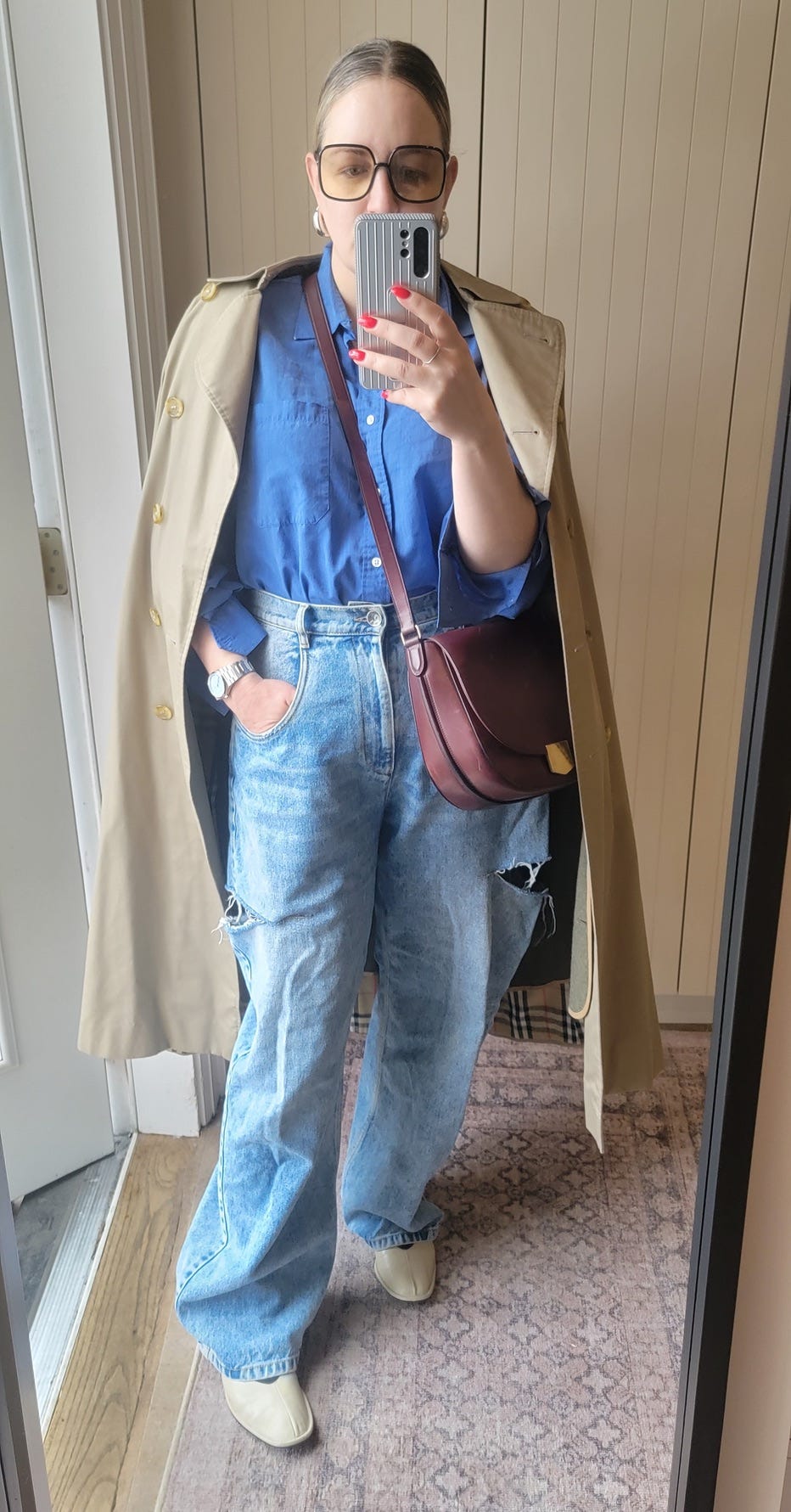
“He wasn’t a Christian Dior guy. My aunt probably found it at a thrift store,” says Toronto-based Jacquie Young-Sterling, 38, Head of 3D Commerce at Adobe.1
“He” is Jacquie’s late-grandfather, Stuart Triebner, a farmer from Exeter, Ontario, a small town of just 4,000 on the Southern shores of Lake Huron.
A few days after his 2010 funeral, and just shy of what would have been his 90th birthday, a bag of Grandpa Triebner’s clothing showed up at Jacquie’s family home. Rifling through it, a blue shirt caught her eye.
Jacquie hadn’t registered the Christian Dior label, “I just thought it was very wearable and I loved that it had his name in it.” The shirt had “S. Triebner” stamped on back, as did all of Grandpa Triebner’s clothes when he had moved into a home as his Alzheimer’s progressed.
“The shirt was the only thing I took.”
Jacquie’s memories of Grandpa Triebner are fond and larger than life. “He was a farmer, a burly guy. One time, my dad had to jack up the front of his car to fix something and couldn’t do it, so my grandfather just went in and lifted up the fender! This was back when cars were heavy. He could crush pop cans with one hand and eat onions like apples.”
Why did he do that? I asked. Jacquie shrugs, “he grew up in the Depression.”
Born and raised on an Exeter farm, Grandpa Triebner had eight siblings and, along with Grandma Triebner, raised seven children (with Jacquie’s mom being the second youngest), most of whom lived nearby.
The farm was the gathering point for his extensive extended family — with Jacquie sometimes having 50 cousins as playmates at one time!! — and is at the heart of Jacquie’s childhood memories.
“Whenever we’d go and visit, we’d stay in the farmhouse, and it was a whole experience.”
“The house was heated with a wood-burning fireplace. When we went to bed, we’d take a piece of heated iron, and wrap it in a tea towel to warm up the foot of the bed. We’d wake up to the sounds of roosters. In the morning, we’d go out to the barn to get eggs for breakfast and we’d make sure they weren’t fertilized by putting them on a flashlight. In the spring, we’d go out to the sugar bush, tap maple trees, put a pot on the wood burning stove, and make maple syrup.”
The traditional working farm sat on 200-acres of land, along with ducks, geese, chickens, cows, and horses. Besides the farmhouse where Grandpa Triebner lived and hosted his family, was a barn and three sheds.
Jacquie fondly recalls “getting into trouble” with her gaggle of cousins, whether it was “falling through ice in the fields” or rifling through a shed of not-so-child friendly materials.
The sheds had “random parts, because it’s a farm. You don’t throw things out like tractor parts and parts of old things. [My cousins and I] would cobble them together to make go-carts and build go-cart ramps.”
Even the olfactory memories remain engrained in her today. The sheds reeked of diesel, and now a whiff of the fuel brings back all of the playtime she shared with her cousins. The farmhouse’s perpetual burning wood is a smell she now finds comforting and sentimental.
Eventually, Jacquie’s uncle Don took over the farm and transitioned to raising exotics. “We had incubators in the basement hatching emus and ostriches, and the babies would be running around the kitchen. We knew which ones were mean and which ones were nice.”
Recognizing their grandfather was in the early stages of Alzheimers, in 2001, Jacquie’s brother Jonathan embarked on helping Grandpa Triebner co-write his memoirs.
To assist with the drafting, the family purchased an early model, clear plastic-covered MacBook, its hyper-modernity jarringly juxtaposed against the rustic background of the farmhouse. The memoir took three years to write, and by 2004, Grandpa Triebner was proudly handing out copies to members of his large family.
Two years after his death, the family decided to tear the barn down, a memory Jacquie describes as “devastating.”
For Jacquie, the shirt embodies all of the memories of her grandfather, family gatherings on the farm, and a bygone time. “It’s a practical way to remind me of him and be connected to him. It reminds of the kind of experiences I want to give my son, which why we go to Riverdale Farm on the weekends.” (Riverdale Farm is the closest thing to farm life you can find in Toronto.)
“I probably wear [the shirt] once a month. It’s ill-fitting and huge on me! The sleeves are very soft, and even if I cuff them or use an elastic band, they’re always falling down, so I don’t reach for it often.
“But every so often I see an outfit I like with a blue shirt and that’s what I’ll use to recreate it.”
Read also:
If you want to submit a photo of a meaningful piece with a short (or long) blurb of where it’s been and why it means so much to you, DM me and I’ll be in touch!
Until next time,
Irene
Jacquie and I had an even longer chat about a second Silent Witness piece - a sweatshirt she picked up in her past life while working as pastry chef at Chicago’s famed restaurant, Alinea. Perhaps it will make an upcoming edition of Silent Witnesses!
Next Post: 101/ Two Pieces To Carry You Through A Corporate Summer





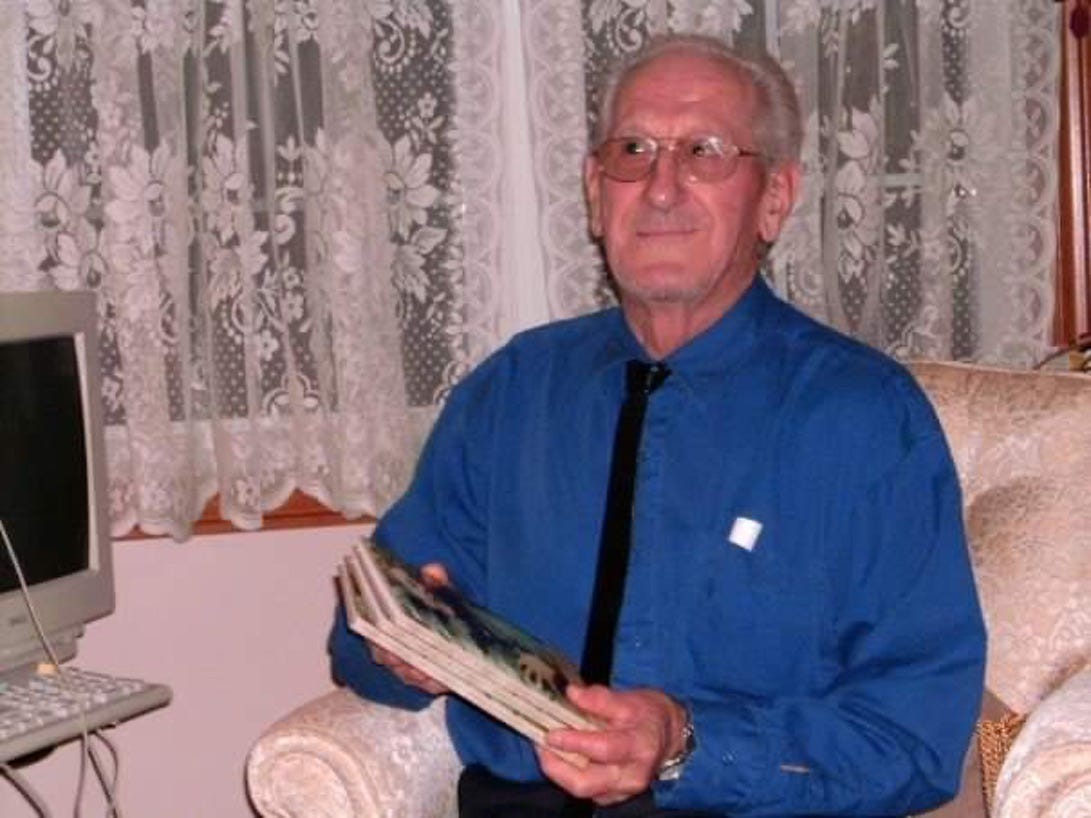
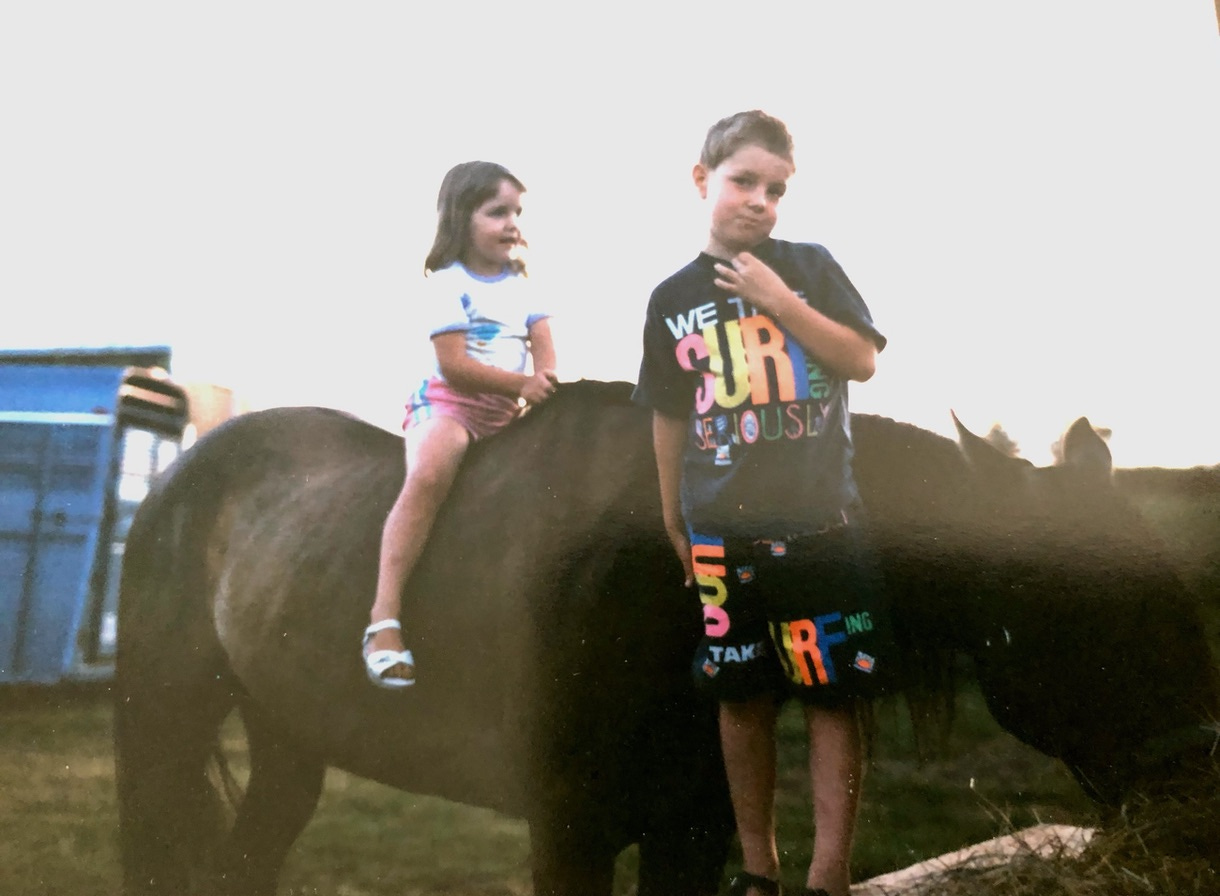
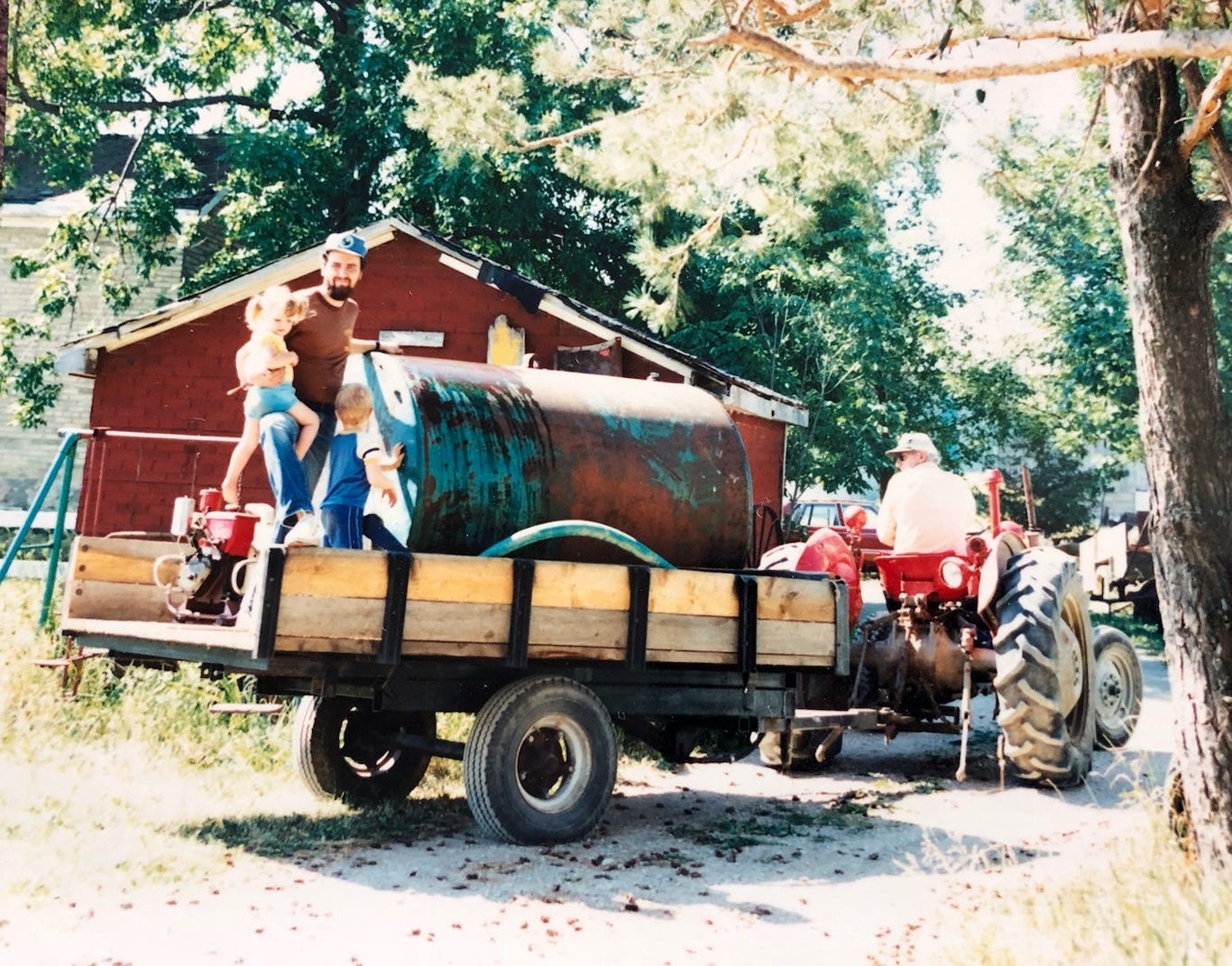
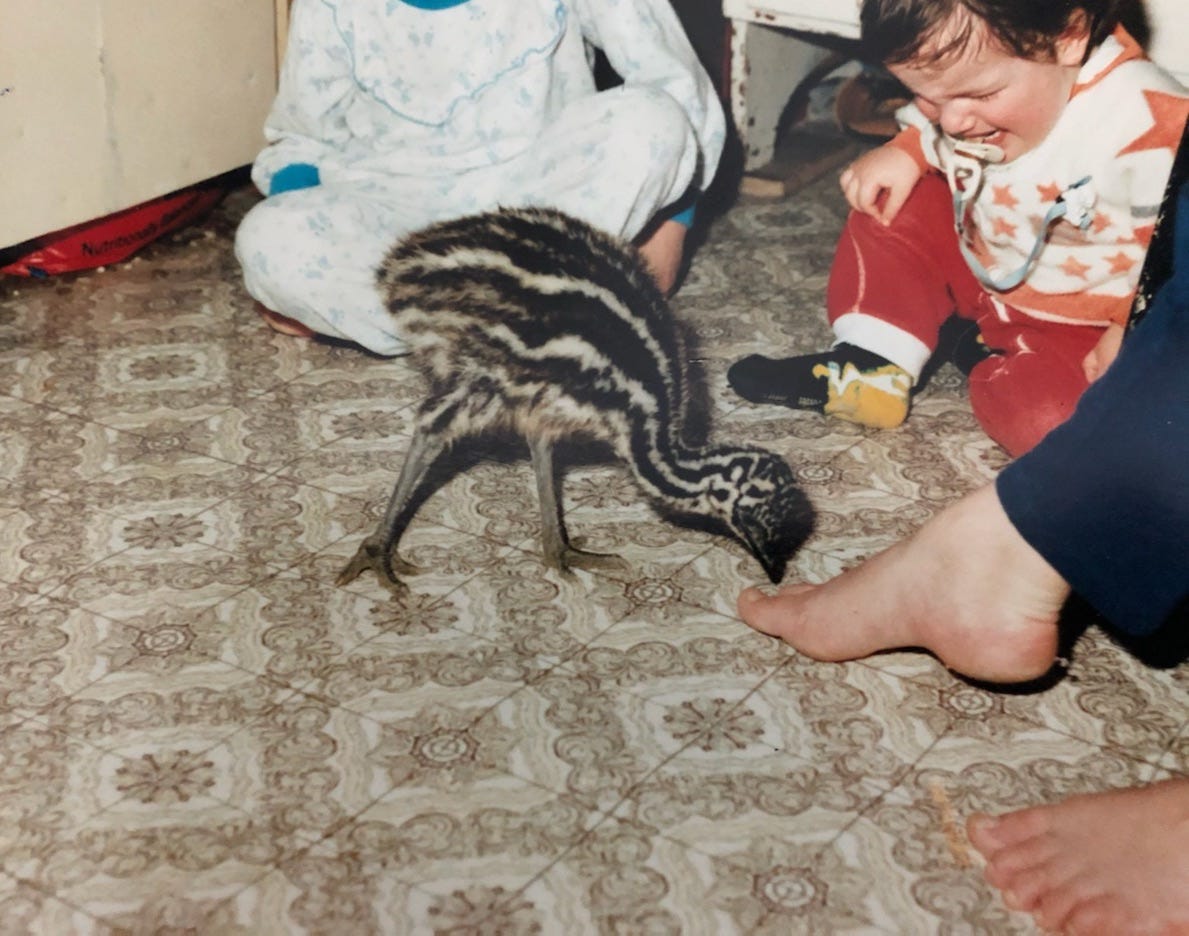
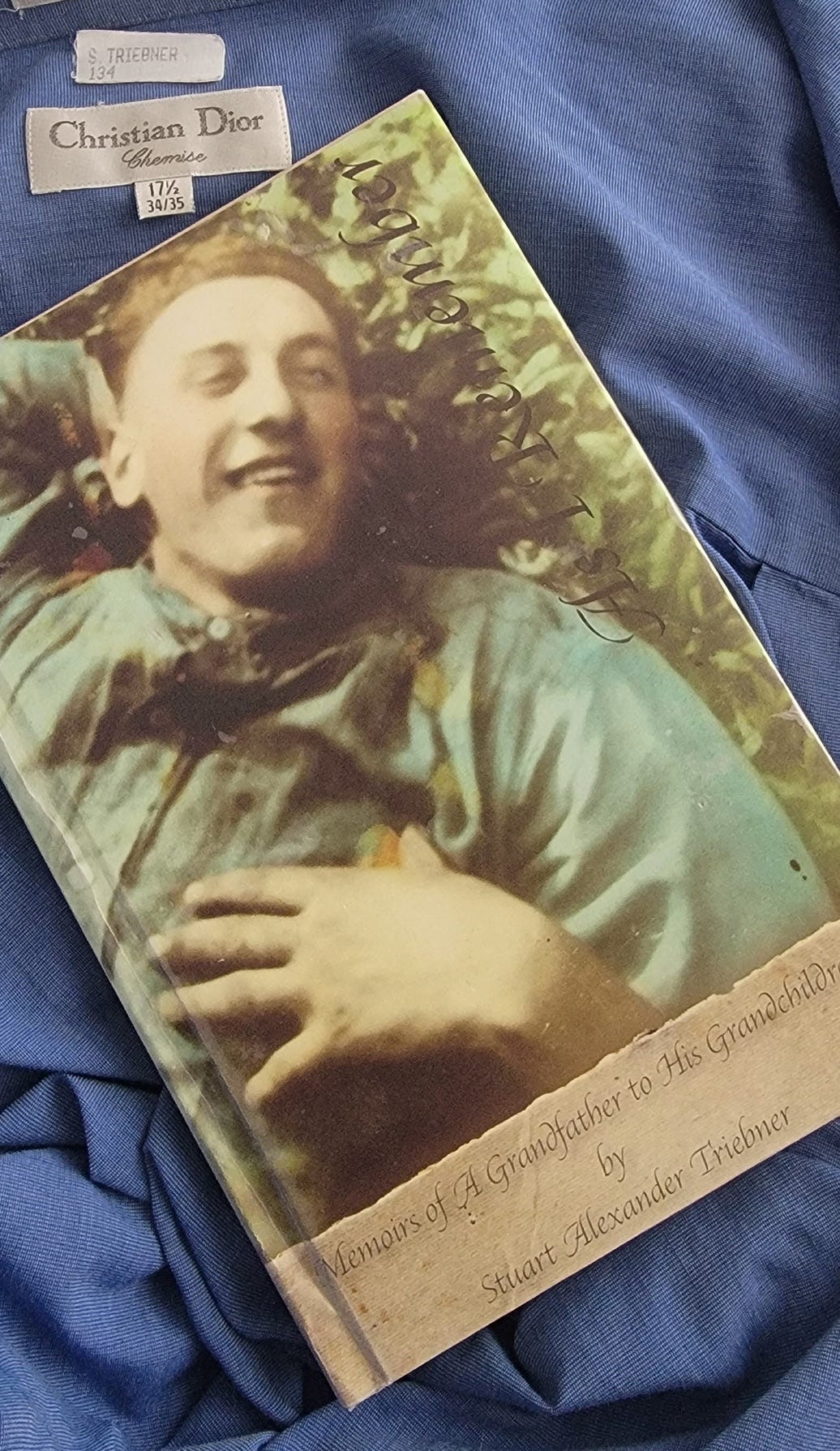
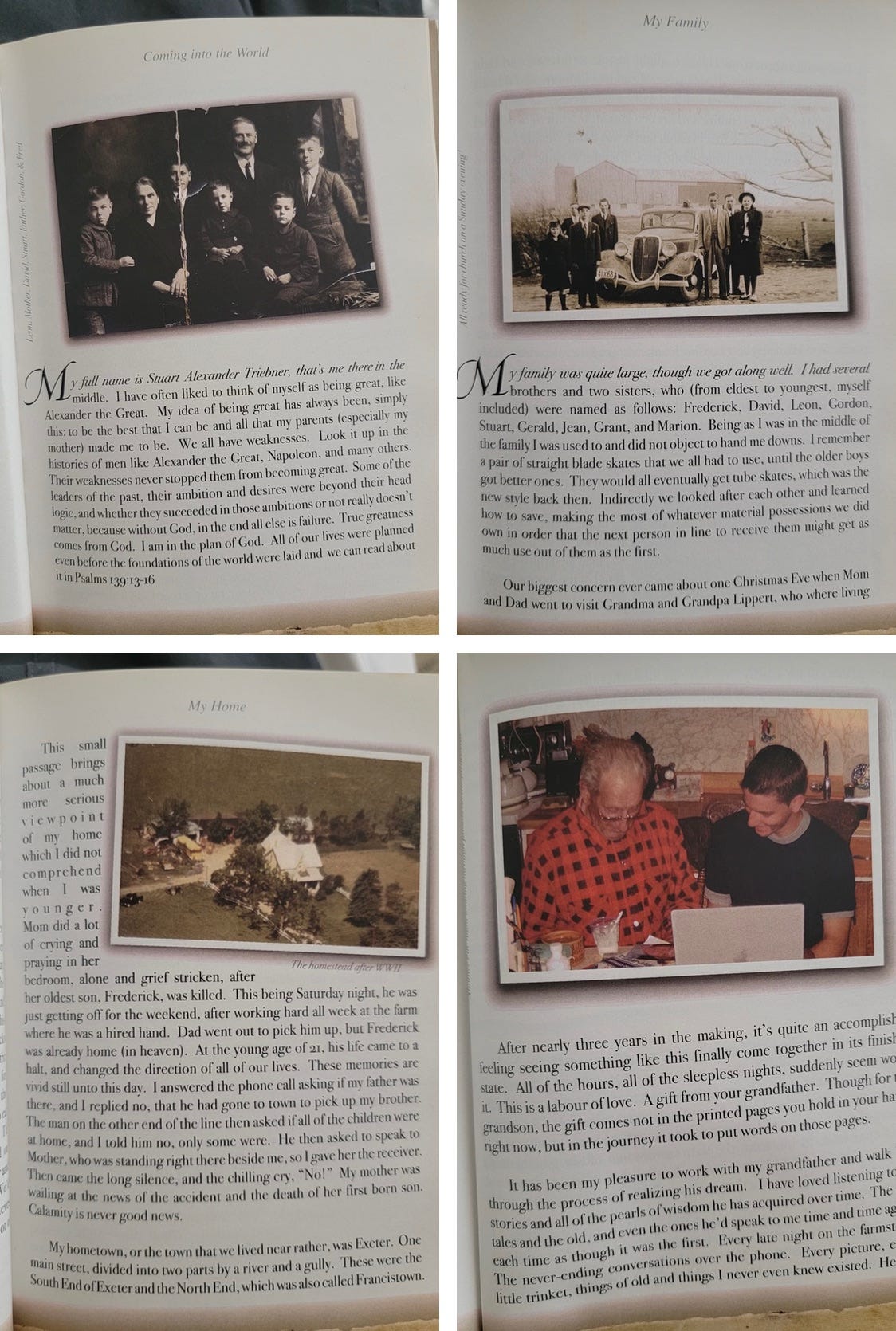

Thanks for letting me share my story with you and your readers. It's lovely to reminisce about my grandfather ❤️
Such a lovely story Jacque and Irene. I was wearing my mother’s cashmere cardigan just last night with her name stamped in the back from her nursing facility where she passed away last year.
I was her caregiver for eight years visiting daily. I feel she is wrapped around me when I where it.